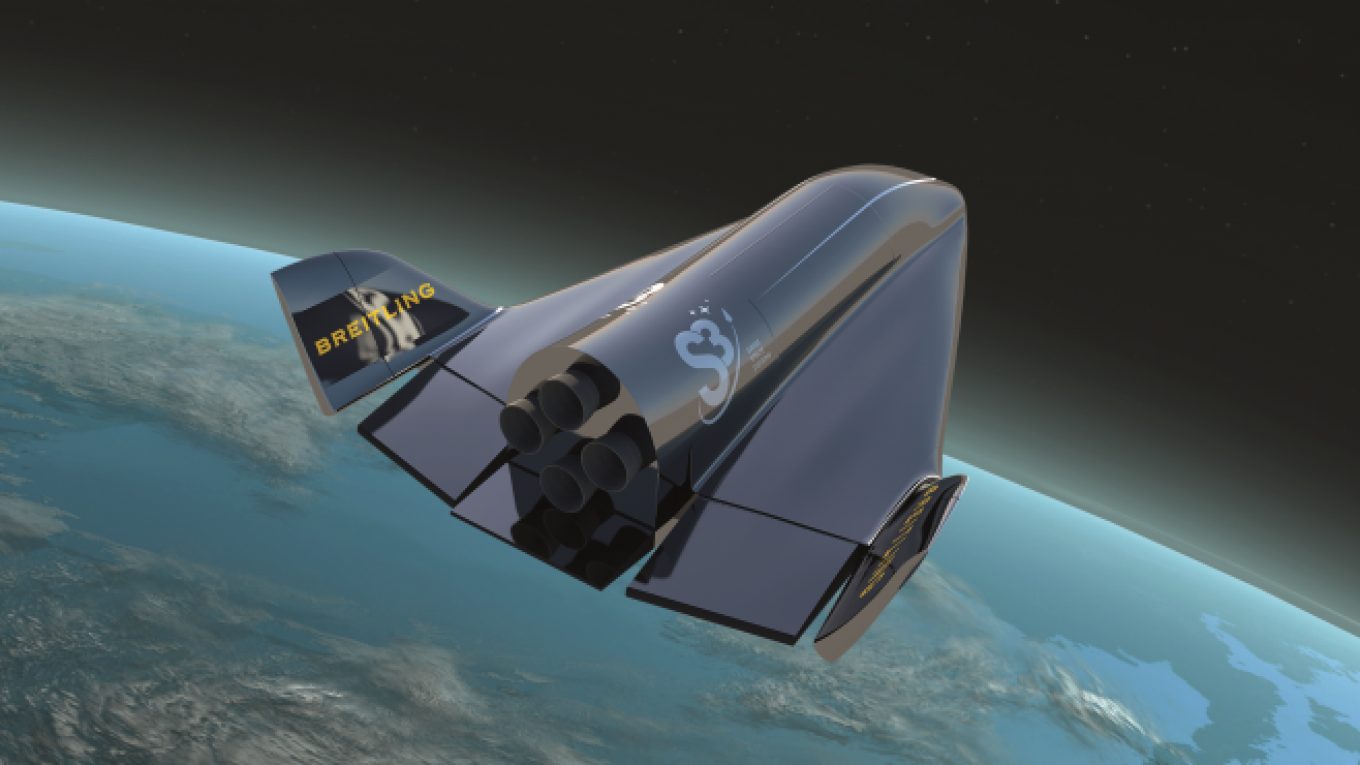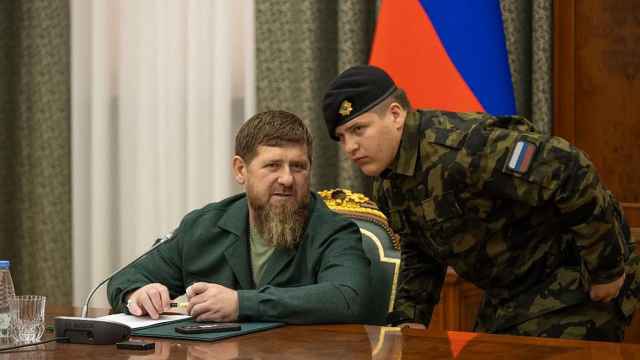As the United States works to free itself from dependence on Russian rocket engines amid the crisis in Ukraine, a European space startup is looking to buy Russian engines to use in a spaceplane design that hopes to begin flying in 2018, news agency TASS reported Tuesday.
Old Soviet-designed rocket engines are attractive options to embryonic commercial space startups because they are reliable and cheap, with the research and development costs having been borne by the Soviet space program decades ago.
Swiss Space Systems, or S3, founded in 2012, is looking to partner with Russian aerospace company Kuznetsov to use Soviet-era NK-39 engines to power its ambitious spaceplane design, known as Soar, TASS reported, citing Kuznetsov's press service.
S3's Soar is still in the developmental phase, but the Swiss startup hopes to begin flying the vehicle by 2018. It will launch off the top of an Airbus A300 carrier plane and fly on a suborbital trajectory into space — meaning that it will quickly return to Earth after leaving the atmosphere — to deploy commercial micro-satellites cheaply and efficiently.
U.S. company United Launch Alliance has for 20 years been using another Russian rocket engine, the RD-180, to power its Atlas V rocket, which is often used to launch U.S. military satellites into orbit. But that partnership has been hit as relations between Washington and Moscow fray over the crisis in Ukraine, with both sides threatening to halt engine deliveries.
The standoff has given new impetus to U.S. efforts to cut its reliance on Russian hardware. Last week, United Launch Alliance said it would develop a new rocket engine with Amazon founder Jeff Bezos' space company Blue Origin.
The Soar project has benefitted greatly from the European Space Agency, Europe's version of NASA, which has provided technical assistance and know-how from its aborted Hermes spaceplane program in the 1990s to speed development of the project.
Kuznetsov's director, Nikolai Yakushin, said after meeting with S3 CEO Josse Pascal that talks are ongoing and S3 is very interested in gaining access to the NK-39 engine. According to TASS, the companies have signed a protocol hashing out stages of cooperation through this year.
The NK-39 is a prototype of the NK-33 engine used in the aborted N1 rocket — the Soviet Union's answer to NASA's Saturn V rocket, which sent U.S. astronauts to the moon in the late 1960s and early 1970s. Today NK-33 engines that were built for the N1 are bought by U.S. space company Orbital Sciences to power their Antares rocket to send supplies to the International Space Station.
Contact the author at [email protected]
A Message from The Moscow Times:
Dear readers,
We are facing unprecedented challenges. Russia's Prosecutor General's Office has designated The Moscow Times as an "undesirable" organization, criminalizing our work and putting our staff at risk of prosecution. This follows our earlier unjust labeling as a "foreign agent."
These actions are direct attempts to silence independent journalism in Russia. The authorities claim our work "discredits the decisions of the Russian leadership." We see things differently: we strive to provide accurate, unbiased reporting on Russia.
We, the journalists of The Moscow Times, refuse to be silenced. But to continue our work, we need your help.
Your support, no matter how small, makes a world of difference. If you can, please support us monthly starting from just $2. It's quick to set up, and every contribution makes a significant impact.
By supporting The Moscow Times, you're defending open, independent journalism in the face of repression. Thank you for standing with us.
Remind me later.






